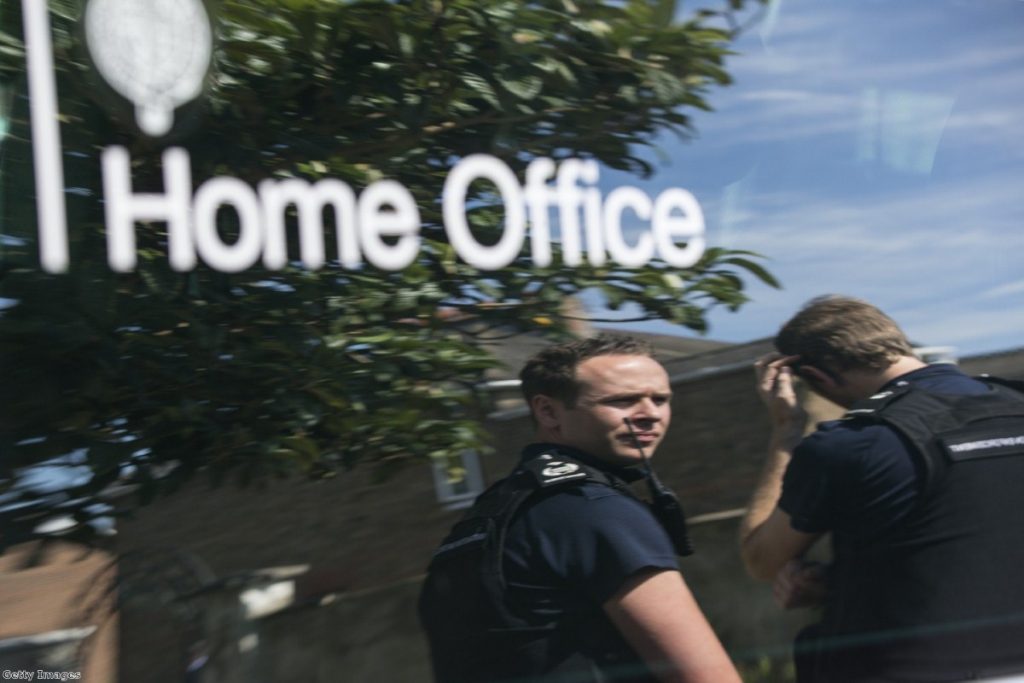Without due process: How Britain deported 50,000 students
A week ago, a young Indian family got on a plane at Heathrow and left England. They had been accused of a crime they say they didn't commit, but they were not shown the evidence against them or allowed to respond to it. They were forced to pack up their belongings and leave the country, their savings spent and their life in tatters.
It happened just as they were starting a new chapter in their lives. Saiba Singh (not her real name) recently got a job in healthcare and gave birth to their first child. Things were just getting started. Then a letter came from the Home Office. It said she'd used fraud to pass the English language test required for a long-term visa to the UK. She was accused of going to a testing centre, meeting a fake exam sitter and then standing to one side while they completed the answers for her.
"The employer is terminating her with immediate effect," her husband told me, days before they left.
"It's very, very upsetting. We did everything legally. We didn't use any shortcuts, any dodgy things. We did everything clearly and legal. But still we are getting the problem with UKBA [the former immigration branch of the Home Office]. So we have to go back. All our saved money is used up. It's a big problem now."


None of it makes sense. Saiba had arrived in the UK in September 2010 and went to a university in Wales, where she got a 2:2 in business management. She hadn't even needed to sit the English language test. She already had a certificate showing she could speak English. She was advised by the university to get a second one to firm up her application. People often do that with visa applications – they stuff every bit of useful documentation they can into it, hoping to present a watertight case.
Why would someone who had good enough English to do a university degree use fraud to complete a language test she anyway had no need for?
There are thousands of others facing the same situation, asking similar questions. No evidence of their fraud has been put to them. Many have records of high scores in other English language tests.
But they cannot use these tests to defend themselves because they have been refused their day in court. Instead, there is an early morning knock on the door from the immigration officers.

Applicants for visas tend to include as much material as possible to try to make their case watertight
"They're picking them up and taking them to detention centres with only the clothes they're wearing," Urvi Shah of Vision Solicitors, who is representing several of the students, says.
"They come anytime between 4am and 8am, in a group of 18 to 20 people. It's about three vehicles full of the immigration officers.
"My client was crying on the phone. When they take the warrant to the magistrate, do they tell them a group of 20 people will go pick up a student who is not a threat? A student who is being treated like weapons have been found at his house?
"One of my clients was part of a couple. I had to get them out the detention centre. The husband was put in one place and the wife in another. They said male and female must be put in different places."

Many of those accused of using fraud are taken to detention centres before removal
Arif Rehman of Mayfair Solicitors says they’ve come across hundreds of people accused of the same crime.
"If you are making such a serious allegation against someone, you should put that allegation to him and give him an opportunity to say something in his defence before you take the draconian decision to remove him," he says.
But that is not happening. Immigration has cast a shadow over the legal standards of British public life. It is the dark zone, where no-one cares how the state behaves. Reporters do not cover it and politicians do not care about it.
The story of the fraudulent English language tests starts with a Panorama report last February. They sent someone in undercover to an immigration consultancy in west London.
According to the BBC, they charged £500 for a "guaranteed pass". The undercover journalist was then sent to a college in east London college for the exam. There they found a 'fake sitter' who sat the test for them. Days later, the student returned to be given a TOEIC (Test of English for International Communication) exam certificate.
The Home Office was quick to respond. Home secretary Theresa May went on Radio 4 and said she was "grateful to Panorama for the work they have done in showing this abuse".
The Panorama report seemed to show a well-established fraud operation operating in the immigration consultancy and the college. But somewhere along the line that expanded to cover tens of thousands of people who had never been near either. Suddenly, many others who sat the TOIEC exam – in different test centres across the country – were being accused of fraud.
The suspicion among lawyers is that the Home Office had found an excuse to hammer down the immigration numbers, picking on overwhelmingly young students and freshly-arrived workers. Many of the people being sent home have excellent English. They have degrees from decent universities. They have jobs where they speak English every day.
Why would they take the risk of using a proxy in an English language test? One has even offered to take an English test in front of Home Office officials and leave voluntarily if his score is lower than the original one on the TOIEC exam.
Continued…

